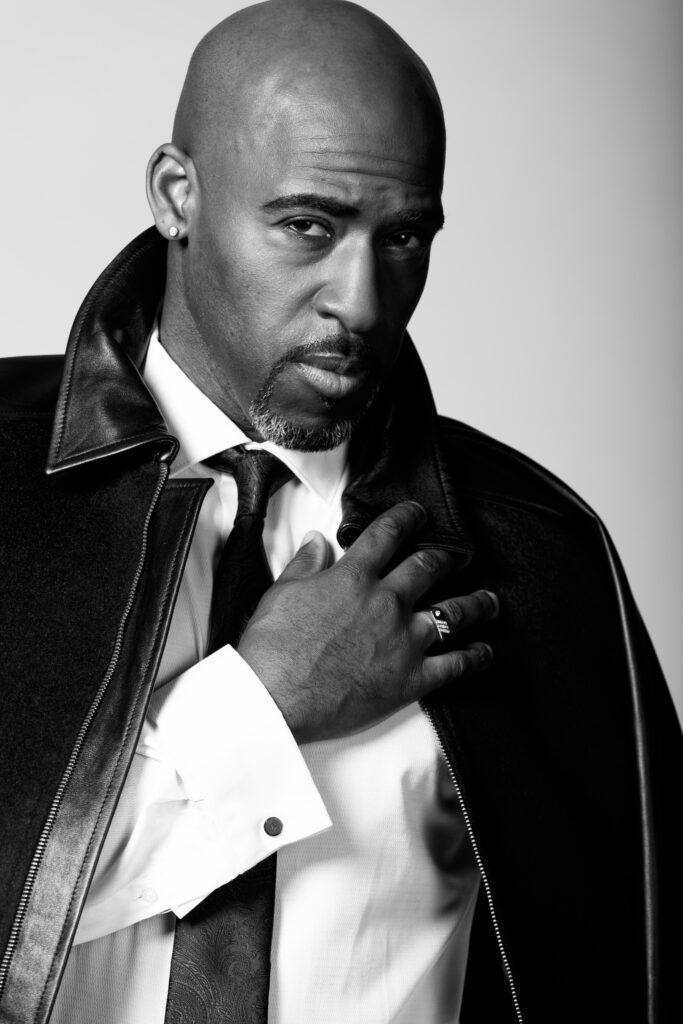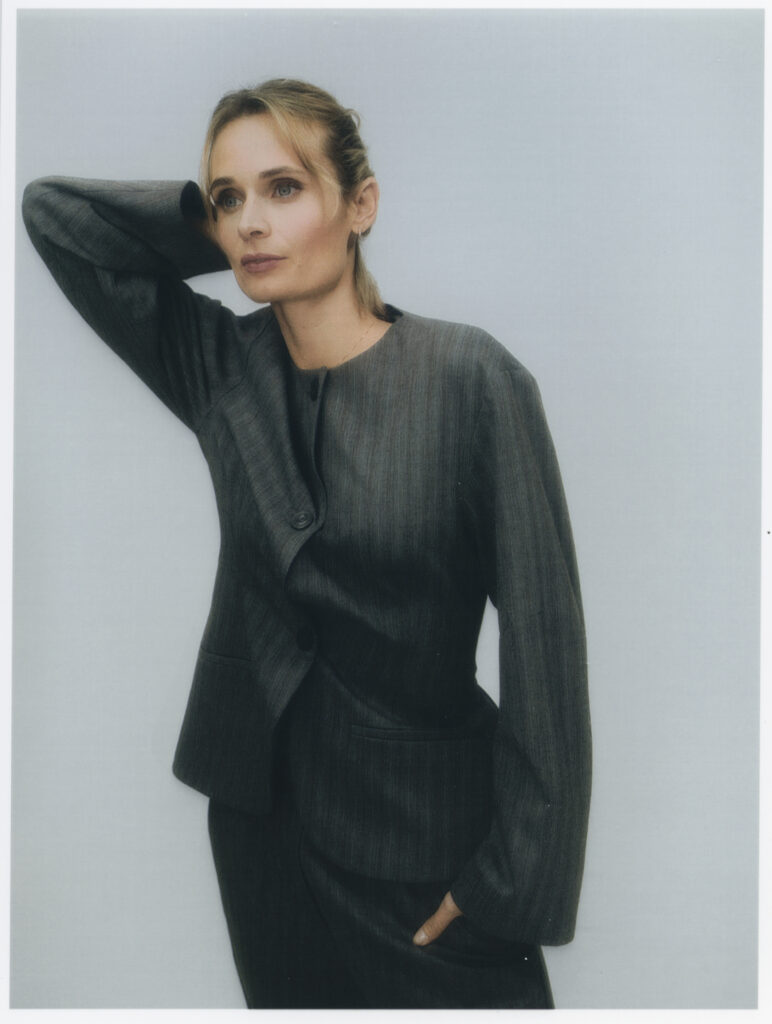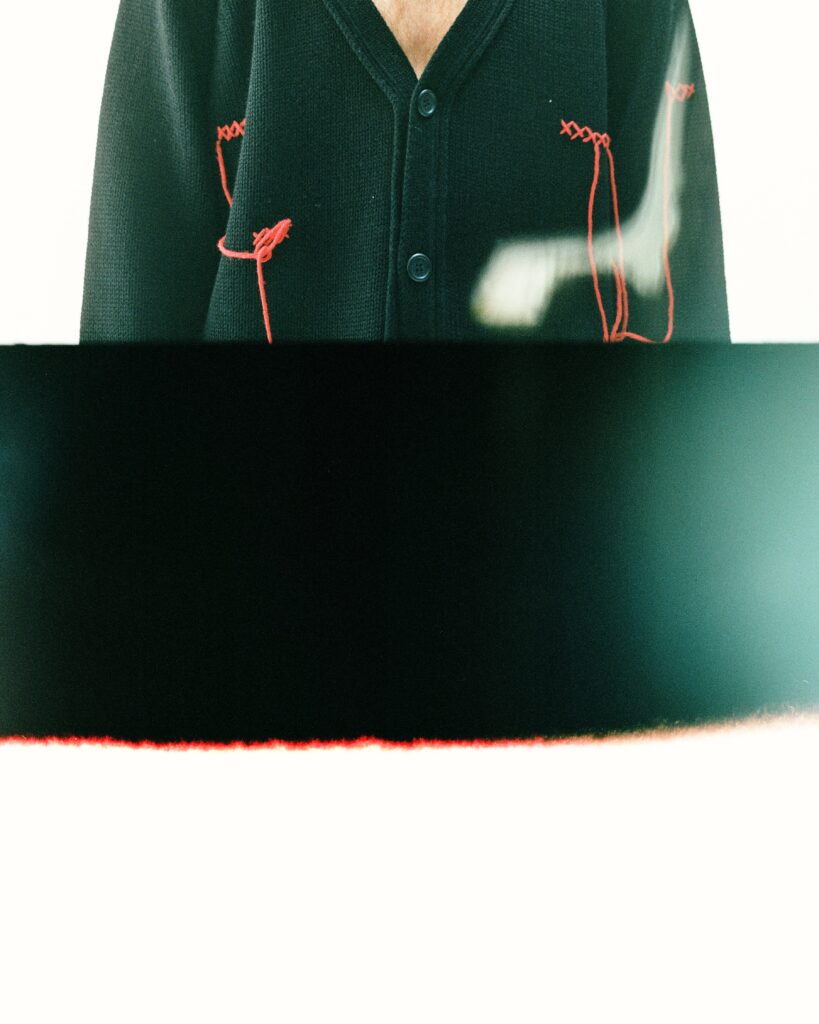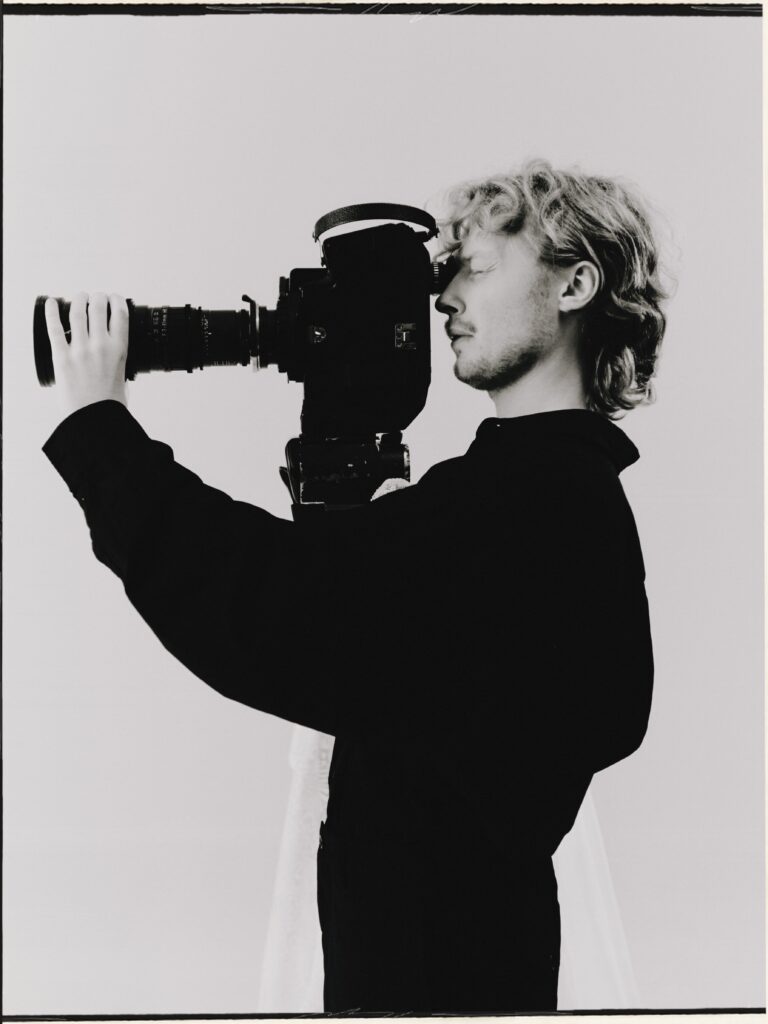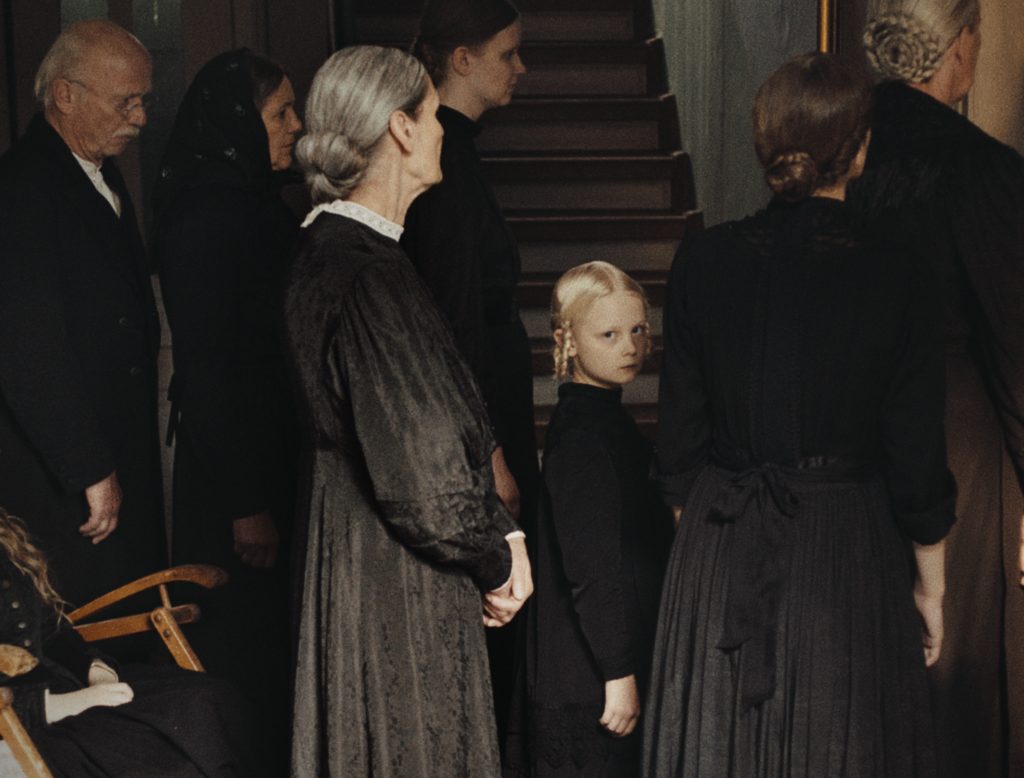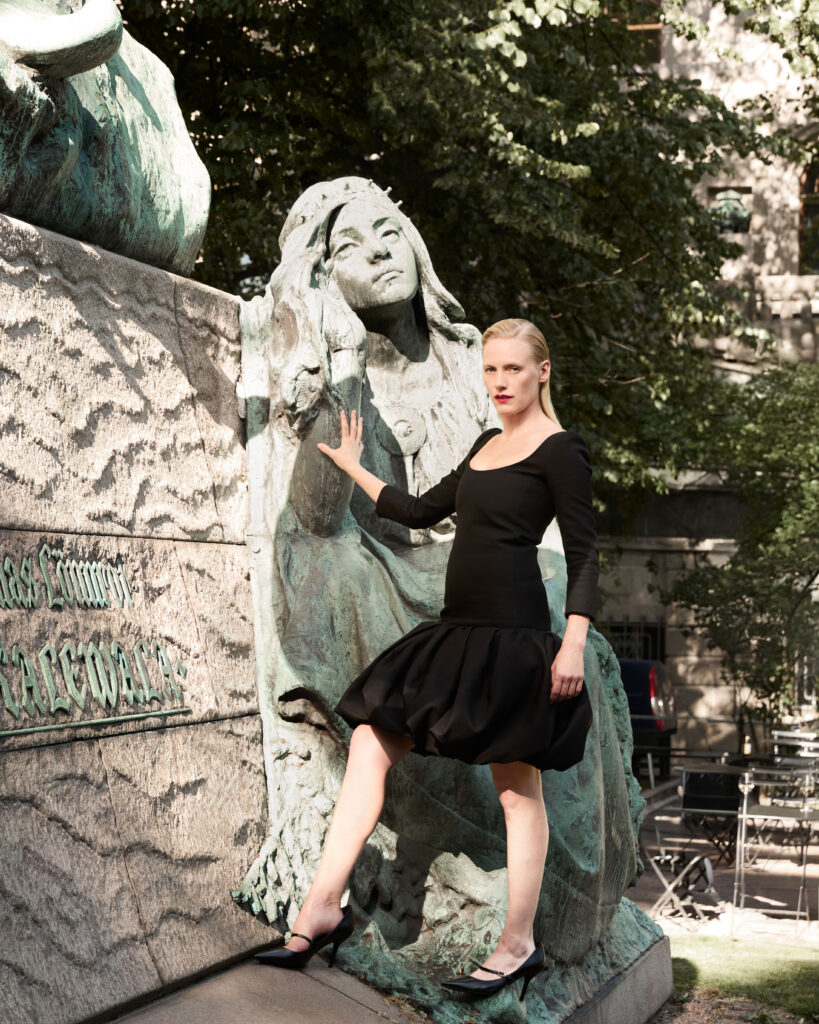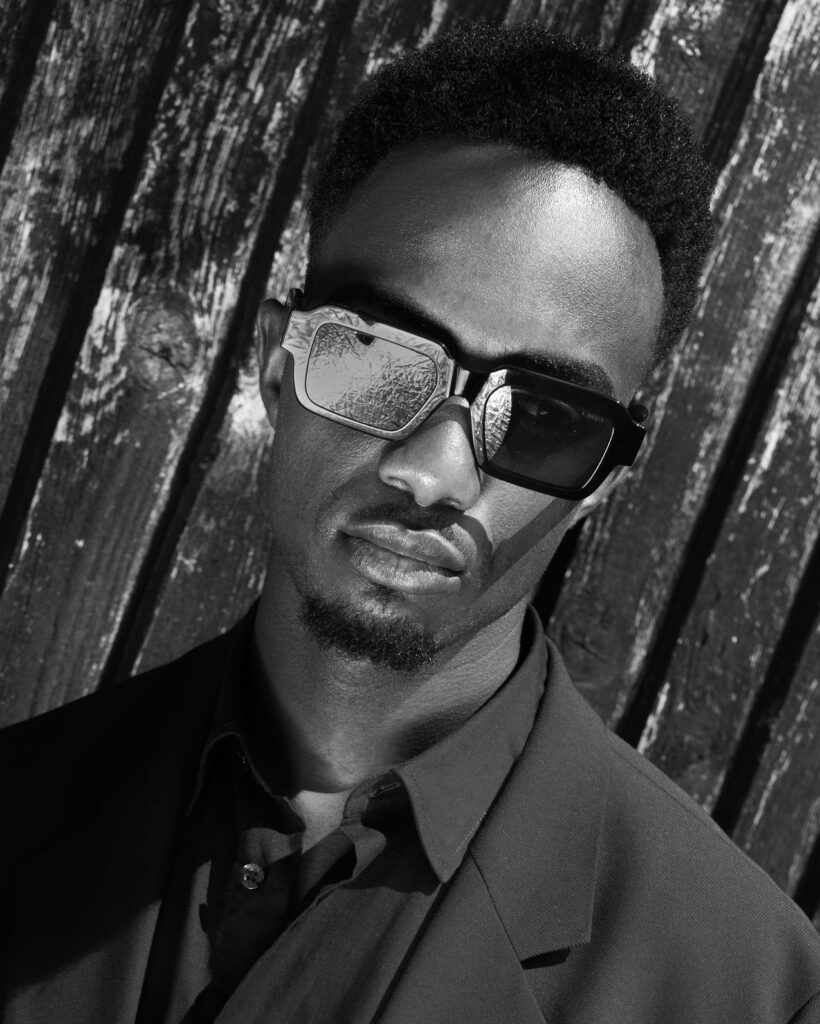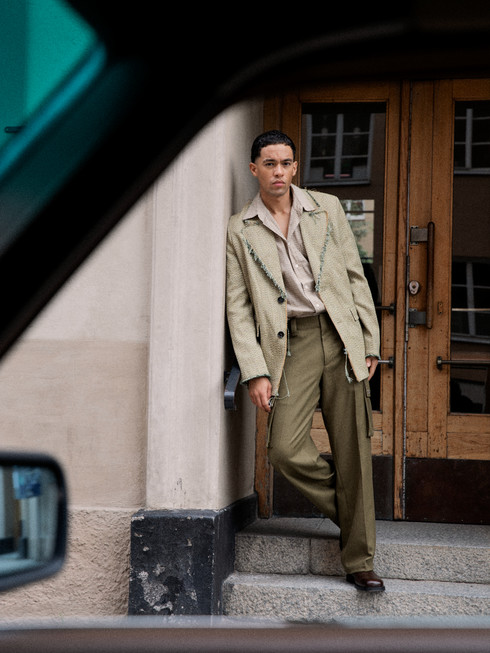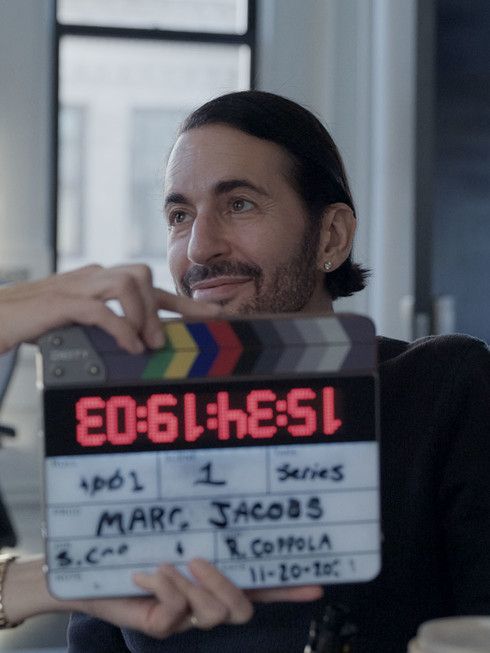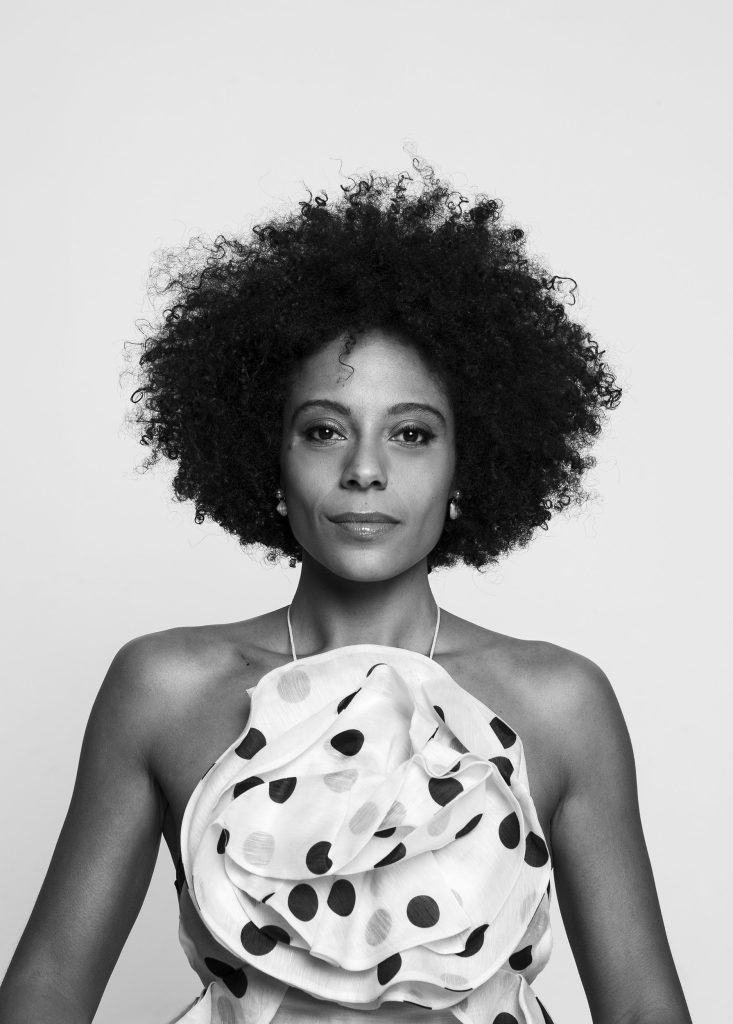Daniel Francis in Full Bloom
jacket Reiss shirt & trousers Phix jewellery ToTintor jacket & trousers Alexandar Nikolich shirt Reiss shoes Next tie ASOS Design jewellery ToTintor Daniel Francis weaves storytelling through intuition. From his upbringing in Battersea, South London, which wired him to root for the underdog, to his education at the London Academy of Music and Dramatic Arts (LAMDA), which taught him to seduce an audience and hold their attention, facets of Francis surface in every role he plays. With the new season of Bridgerton now streaming on Netflix, we caught up with The Gardener to learn how patience, precision and instinct come together to grow a character worth watching. jacket Alexandar Nikolich shirt Reiss tie ASOS Design jewellery ToTintor Maya Avram: What have been some of the best reactions you received for your performance as Lord Marcus Anderson? Daniel Francis: Mainly the gardener comment, you know — Violet Bridgerton speaking about her “garden” being “in bloom” in Queen Charlotte: A Bridgerton Story, landing Lord Anderson the nickname of The Gardener. Back in season three, the audience wasn’t too sure about his intentions at first. Was he pure of heart, or is he kind of a rake? But as his genuine interest in Lady Bridgeton unfolded, the audience started to root for them. That part has been wonderful. MA: Did you enjoy that tension as an actor, or were you waiting for him to win over the audience? DF: It’s always fun to have secrets. I would see comments from people, ’Oh, I don’t trust this guy,’ or ’What’s his intention?’ you know, because Lady Bridgerton is such a beloved character. So I was intrigued to see the responses once audiences realise Lord Anderson was genuine. It has been largely positive, which has felt amazing. MA: How much of yourself is in Lord Anderson, and vice versa? DF: With any character, I always start by asking myself what part of me I want to explore or express through that role. What I appreciate most about Lord Anderson is his patience. This is not one of my strong suits at all — I’m really impatient personally, but I appreciate his type of sensuality because it takes time. He’s been in the countryside, so he moves at a slower pace, absorbing Lady Bridgerton and creating space for her. That’s where I see myself: proactive patience, allowing things to unfold but still pursuing something or someone out of genuine interest. jacket & trousers Alexandar Nikolich shirt Reiss jewellery talent’s wore his own MA: What can we expect to see in the new season? DF: Lord Anderson’s and Lady Bridgerton’s relationship evolves. It’s unexpected, it’s unpredictable, but I like their dynamic because it’s not the first rodeo for either of them, so they can be honest with each other. We rarely get a chance to do that. They talk openly about their situation and past experiences; it’s very open. And it speaks to a demographic that isn’t usually front and centre in a love story, getting a second chance at love. ”Bridgerton has a place because it allows us to feel and experience love — who doesn’t want that?” MA: You’re a classically trained actor, educated at LAMDA, and having started your career at the Royal Shakespeare Company. How does your theatre work differ from your onscreen performance, and which is your favourite? DF: The intimacy of storytelling on camera, which I’ve grown to love, is unmatched. In comparison, being on stage means sharing a story with a live audience and inviting them in. The immediacy of stagework, the rigorous preparation and rehearsing — I love that process, I love the exploration of a play. It’s a completely different dynamic, but they both resonate with different sides of me. I love the interplay with the audience, being there in the moment, knowing you’ll never see it again. jacket Phix shirt, trousers & shoes Reiss jewellery ToTintor Theatre will always be important for bringing people together to hear human stories and connect jacket Alexandar Nikolich jewellery ToTintor MA: What’s something you’ve learnt from your time as an actor? DF: To follow my instincts. I’ve made some decisions in the past that weren’t right for me, but as Steve Jobs said, it’s impossible to connect these dots looking forward; you can only do it looking backwards. So the lesson is to trust your intuition, and when it tells you something, you can go, ‘I know that feeling; I’m going to pass, or I’m going to go for this thing.’ MA: What’s been a highlight in your career so far? DF: I love Bridgeton. A project of this magnitude — not just the production size, but it started a whole movement. MA: A cultural reset. DF: It really is. That is rare, and I’m grateful to be a part of it. MA: What excites you about the future? DF: I’m excited for people to see the new season. The level of work that has gone into it, the attention to detail, the care and stewardship we have put into creating something that hopefully audiences love. It’s a Cinderella-type story, and I love an underdog because of where I grew up. I’m excited for people to see this magical story.

